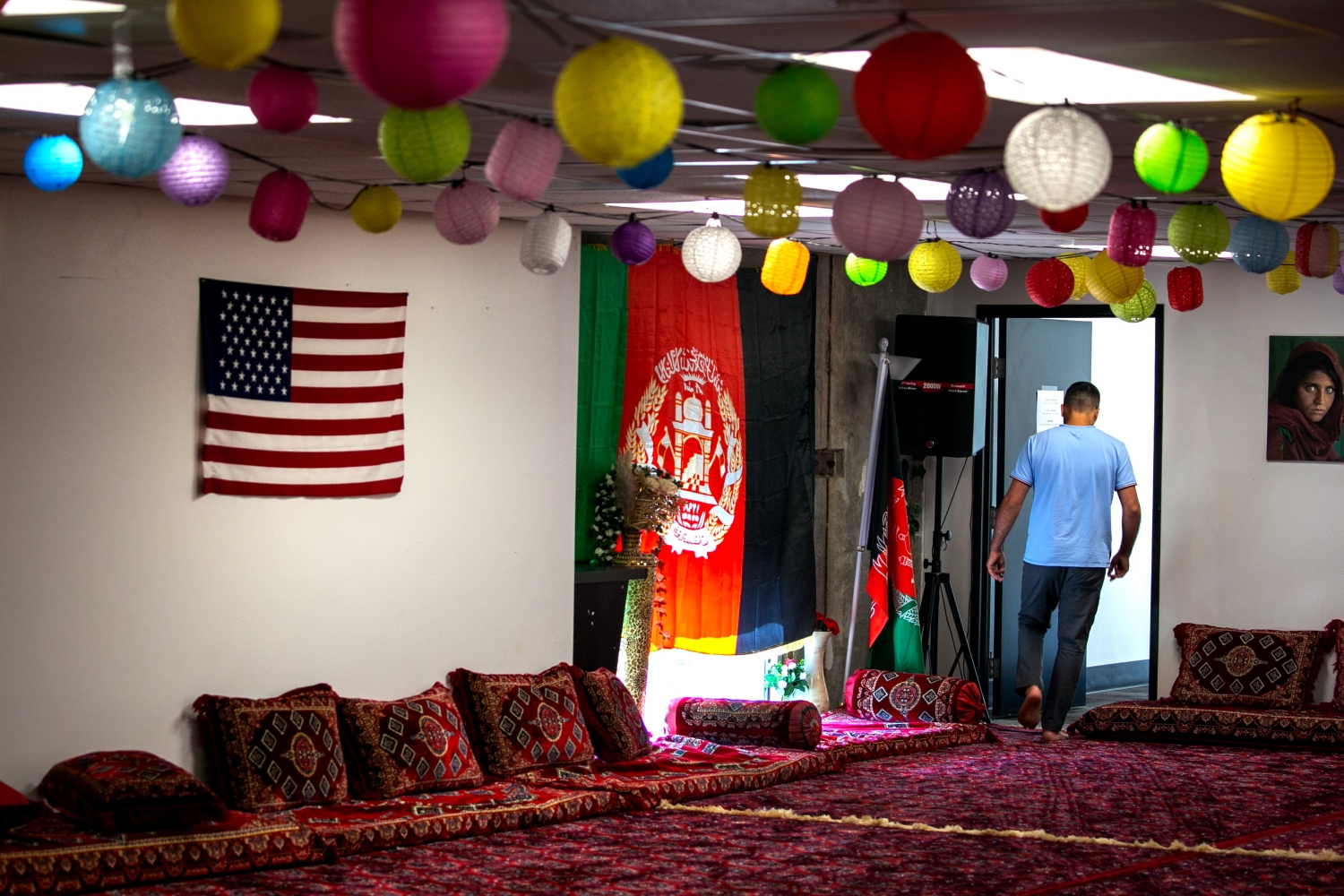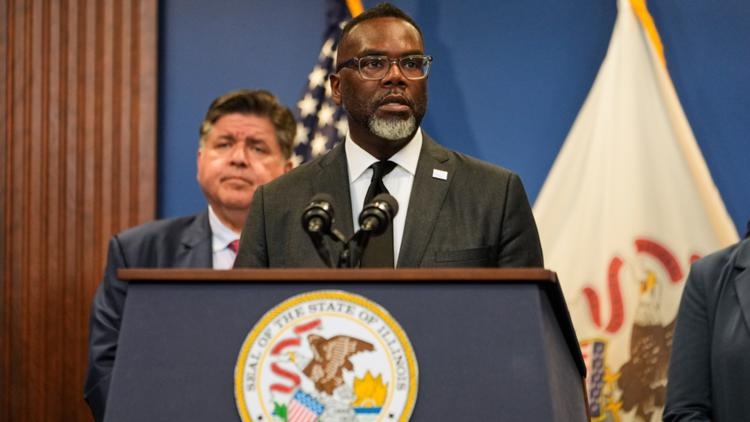

Published on: 09/01/2025
This news was posted by Oregon Today News
Description
In August 2021, the United States ended its two-decade war in Afghanistan, marred by a chaotic and deadly exit that saw thousands of Afghans and Americans alike fleeing the country.
Afghan immigrant Darwaish Zakhil watched from Beaverton, Oregon, nearly 7,000 miles away, as Afghanistan’s capital city of Kabul fell back to the Taliban, the group he had helped the U.S Army fight against for four years.
In the week that followed, sparked by outrage of the withdrawal, Zakhil and three of his fellow immigrants started the Afghan Support Network to help newly arriving Afghan refugees in the local community. And the agency has grown a lot since then.
But now the crucial grants that ASN has relied on are drying up. At the same time, the fear of immigration crackdowns is pushing Afghan immigrants further into the shadows, making his organization’s services more important than ever.
As the group looks ahead to its fourth anniversary, Zakhil says there’s a lot to worry about. He says there’s also a lot to celebrate.
The birth of the Afghan Support Network
Zakhil had served as an interpreter and cultural advisor, helping U.S soldiers navigate his home country, before he moved to Oregon. As U.S troops fled the country, they left behind thousands of his fellow interpreters to face the violent return of the Taliban. Zakhil was angry and confused.
“After 20 years of that investment and sacrifice that Afghans made — and the U.S as well — the sudden collapse and withdrawal was just shocking,” he said.
Zakhil wasn’t alone, as many members of Oregon’s tight-knit Afghan community felt the same way. In late August 2021, hundreds showed up to a protest he helped organize at Pioneer Courthouse Square in downtown Portland, where they walked the streets to raise awareness of the situation unfolding in their home country.
Zakhil posted photos online of the turnout. Hours later, he received a call from Ajmal Wahab, a fellow Afghan, who had one question.
“What can I do to help?”
Soon after, Zakhil received another call, this time from Yahya Haqiqi. Haqiqi explained that a 13-year-old girl who had just come in from Afghanistan was set to be placed in foster care.
That day Zakhil, Wahab, and Haqiqi met with Zubair Kohestani, another concerned community member, to discuss how they could help. They huddled around Zakhil’s dinner table inside his small Beaverton apartment and formed the Afghan Support Network.
The goal: “To uplift the newly arriving Afghan refugees in their local community.”
Zakhil was a community advocate. Wahab was a certified accountant. Haqiqi was a nonprofit consultant, and Kohestani worked in city government. Zakhil said together they made up the perfect team.
The four men — all volunteers at the time — opened their homes to incoming Afghan families and helped them with everything from translation services to housing to case management. It was a slow start for the men as they gathered limited resources to help the small but growing immigrant community.
By December 2021, less than four months after the withdrawal, ASN became an official nonprofit organization and Oregon’s first organization primarily dedicated to aiding Afghan immigrants.
Just one month after that, ASN received its first grant, which allowed Zakhil to become the organization’s first full-time employee. Soon after, Haqiqi began working part-time.
The pair would cook meals in their homes and take them to hotels where refugees were being housed.
“Whenever we had time we would go out there and help people in every way that we could,” Haqiqi said.
In their early days, Zakhil estimates ASN scraped together enough resources to provide meals for 30-50 families.
As time passed, the organization began to receive federal, state and non-government funding grants. The popularity and need of their services propelled the organization to new levels. They were able to open a community center in Beaverton.
Inside ASN
The center sits tucked above a screen printing warehouse in an industrial strip of southeast Beaverton.
A walk up a sharp flight of stairs reveals a spacious room covered by intricately woven traditional carpet. Pillows and prayer mats are neatly stacked against the wall. Two men sit at a small desk. One guides the other through government paperwork.
In the opposite corner of the room, 15 men gather in a makeshift classroom. A woman stands before a TV slideshow, teaching a class about nutrition. The men focus intently as she explains in Dari, one of two official languages of Afghanistan, the importance of vitamin A.

The class is one of many offered by ASN, aimed at helping immigrants adapt to American life.
Paper lanterns line the room’s ceiling, left over from a poetry event held nights before. The event called, “Voices of the Homeland,” provided an open mic for community members to read personal poems.
Other events have included visits from judges, police officers and city councilors, who help explain basic laws and civil rights. Zakhil said events can bring up to 500 people.
In the nearby office area, Haqiqi pulls out an Oregon Driver and Motor Vehicle Services pamphlet, translated into Pashto and Dari. He says about 90 women have graduated from ASN’s drivers education program. Many of them had never driven before.

Driving has commonly been prohibited for women under Taliban rule in Afghanistan. Haqiqi says the class is about more than driving. It also represents a new set of freedoms and access in the U.S.
Haqiqi said ASN also provides 16 English classes per week, along with STEM science programming and other language classes for over 60 young members.
But despite the success of its various programs, ASN is now in a deep funding hole.
Lost funding
Funding has become ASN’s greatest obstacle.
Haqiqi said as of this year, many of the grants the organization previously relied on simply don’t exist anymore. The sudden loss in funding has forced ASN to lay off three of its employees and shift many of its programs.
“It’s made those things just incredibly difficult as we try to figure out where we can go,” Haqiqi said. “[It’s] hard because what people need is different from what’s out there.”
ASN has worked to leverage partnerships with larger nationwide organizations such as No One Left Behind, which works to evacuate and resettle interpreters and others from Afghanistan.
Through partnerships like this, ASN has been able to help families find temporary and long-term housing.
“We always explore new ways to [help],” Zakhil said. “[People] come here with hope. They say, ‘We know ASN is there. What can you do to help me?’ They don’t see the backing [and] how we are impacted by all those [cuts] but the community still has that hope from us.”
The funding cuts are so severe, they have derailed the organization’s plan to open a second branch in Salem. Zakhil said he knows of about 200 families there who are currently in need. The expansion was part of ASN’s mission to better serve the southern Willamette Valley, but for now they’ve been forced to adapt their plans.
In the last month ASN has provided 29 families with rental support in Salem and Eugene through its Salem-based community engagement manager Hedayatullah Azimi.
Without a Salem office, he’s often forced to refer families to the Beaverton office, more than 40 miles away. However, he says that many families don’t have drivers licenses or cars, leaving them stranded in Salem. He said he has even resorted to meeting families in public parks and libraries.
“Inviting them to public [places] like libraries and parks is not official,” Azimi said. “People want to come in person and talk to us and explain what hardships and problems they have, and some of them are not comfortable with getting into the parks.”
Azimi said because in-person access is generally only available at the Beaverton office, many families miss out on some of ASN’s core services altogether. As a result, he does most of his advising over the phone.

“I think one of the big issues is the lack of an office or physical address,” Azimi said.
He said it’s a matter of “trustability” and that having another space for people to go would help legitimize ASN’s programs with newly arriving immigrants.
Immigration crackdown
The Trump administration’s sweeping expansion of the U.S. Immigration and Customs Enforcement division has created a great sense of fear throughout the Afghan community, Haqiqi said.
“One of the biggest ways this has an impact is it just creates an increased level of uncertainty for folks,” said Haqiqi. “There’s a lot of fear in the community.”
According to Haqiqi, false social media rumors of immigrants being detained at green card hearings has caused immense fear within the Afghan community. He said many people skip their interviews out of fear of being detained, ultimately leaving them more susceptible to arrest in the future.
Haqiqi also said he knew of 200 Afghan families bound for the United States who were turned around mid-flight, just hours after President Trump was sworn in for his second term. Reuters reported that nearly 1,600 Afghans total were pulled from U.S. bound flights during that time period.
“These are folks that fought side-by-side with the U.S. Army,” Haqiqi said. “These are veterans in everything but name, and it’s unfortunate that we continue to treat our veterans this way.”
Additionally, the Trump administration delayed hundreds of visa and green card hearings scheduled throughout 2025. These delays have left many already in the U.S., and hundreds waiting in Pakistan and other countries, in immigration limbo.
Ihsan is an Afghan immigrant and ASN member, whose full name OPB is withholding due to his ongoing immigration case and his fear of retribution by the Trump administration. He is among those impacted by the delayed visa hearings.
After years of waiting, Ihsan and others were set to have their initial hearings in December 2024. That never happened.
Ihsan said earlier this month many in the group finally received an email, but it said their court dates were pushed to 2029.
“It is a long time that we have to wait without any documents and without any benefits,” said Ihsan, an engineer by trade. “I want to work in my own field [and] because of that, I have to study and do certifications and [to do that] I have to have a scholarship, but I am not eligible for those scholarships because of my documents.”
He described it as a domino effect and said that it is becoming increasingly hard to support his wife and three children.
“These are the things that [we] are really struggling with [in] our [lives] and our settlement processes here in America, but we are still working to do better,” Ihsan said.
Another part of the battle for ASN, Haqiqi said, is countering a narrative that immigrants are a burden on the system. He points to people in the organization, including himself, who are working to become doctors, lawyers and other trained professionals.
“These are people [and] fields that are in huge demand,” Haqiqi said. ”These are folks that can have a huge impact on the economy here, on everything. But because of the way we’re treating them, we’re actually having a more negative impact on the economy here, on society here … it’s more self-harm than anything else.”
State and resettlement groups help Ukrainians in Oregon
Looking ahead
In the four years since ASN was founded, the organization has grown to over 20 employees, and its founders are still attempting to expand their operations.
Zahkil said he has seen incredible growth in the people whom he first helped in ASN’s early days. He credits the support of ASN for some of their successes, and of course “their own determination and commitment.”
“From those evacuations, from the horrific pictures of [the] Kabul airport that we saw, among those people [are] Afghans that came to the U.S., into the state of Oregon, and within four years, with the support of ASN and their hard work, are in places that they are giving back,” Zakhil said.
Haqiqi said he has picked up many immigrants at the airport who had nothing but the clothes on their backs. He said they are now thriving in the U.S and on their “way to the American Dream.”
“We have people that came here with literally nothing. I picked up people that had half their shoes, the other half was broken and wasn’t there. And those folks are succeeding right [now] and they’re paying their taxes and they’re supporting other folks.”

Zakhil doesn’t want the successes to stop there. He said with ongoing support, Afghans will continue to contribute to the community.
“We want to see Afghans [become] senators and congressmen and move forward to help the large community,” he said.
On the fourth anniversary of the U.S. withdrawal, Zakhil said there are still thousands of people in need of rescuing. He urges federal leaders and people across the country not to forget about the Afghans who risked their lives to serve alongside the U.S. during their two decades of war.
“We’re trying to build that sense of giving back into the community as much as possible,” Haqiqi said.
“Our goal when we talk about the future, is for the Afghan Support Network to be an arm of the Afghan communities, supporting other communities and helping other folks succeed as well.”
News Source : https://www.opb.org/article/2025/09/01/oregon-afghan-refugee-program/
Other Related News
09/04/2025
Seattle Mariners starter George Kirby 8-7 lasted just two innings the shortest start of hi...
09/04/2025
EUGENE Oregon is going from facing a quarterback it played before to one that has barely ...
09/03/2025
Details of the operation were still scant but President Donald Trump has said an immigrati...
09/03/2025
The plan uses tax increment financing for parks transportation housing across 900 acres ov...
09/03/2025











